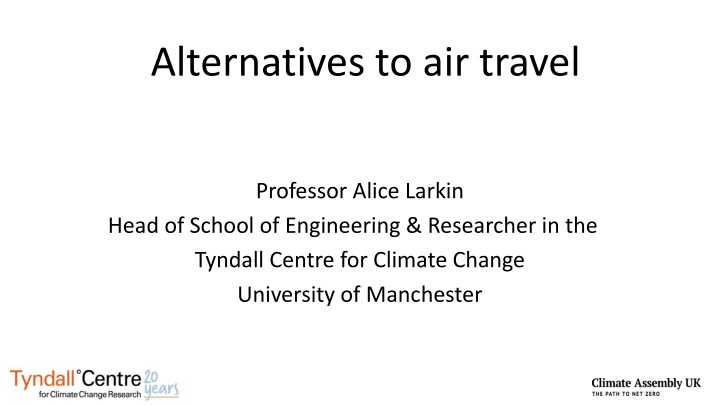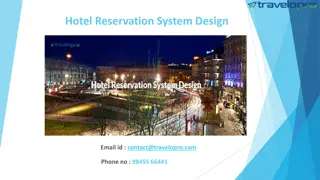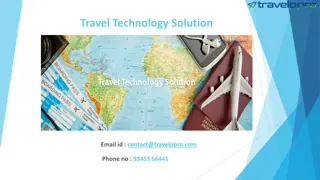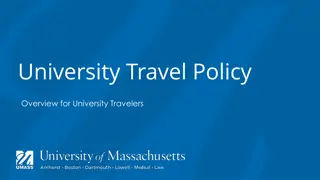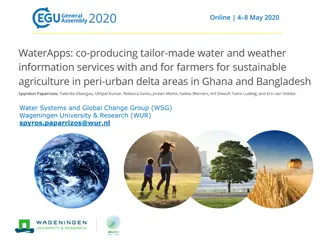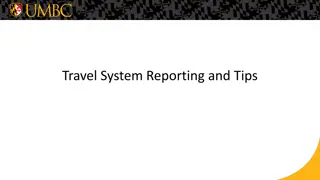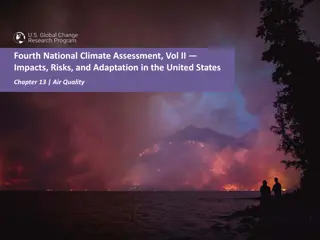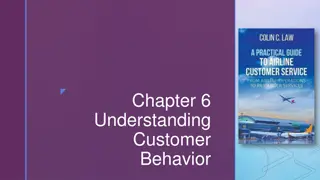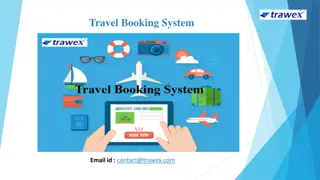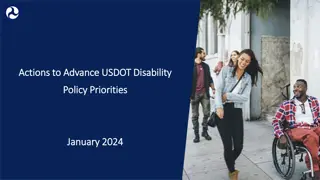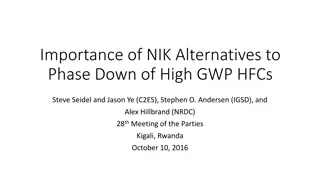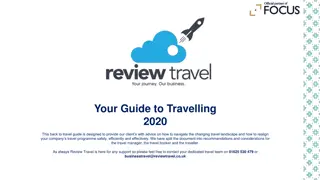Sustainable Alternatives to Air Travel for Climate-conscious Travelers
Professor Alice Larkin from the University of Manchester discusses alternatives to air travel, emphasizing the impact on climate change. She addresses options such as rail, road, ferry, and virtual meetings within and outside the UK, along with insights on sea travel and decarbonizing ships through various technologies like electric, hydrogen, and biofuels.
Download Presentation

Please find below an Image/Link to download the presentation.
The content on the website is provided AS IS for your information and personal use only. It may not be sold, licensed, or shared on other websites without obtaining consent from the author.If you encounter any issues during the download, it is possible that the publisher has removed the file from their server.
You are allowed to download the files provided on this website for personal or commercial use, subject to the condition that they are used lawfully. All files are the property of their respective owners.
The content on the website is provided AS IS for your information and personal use only. It may not be sold, licensed, or shared on other websites without obtaining consent from the author.
E N D
Presentation Transcript
Alternatives to air travel Professor Alice Larkin Head of School of Engineering & Researcher in the Tyndall Centre for Climate Change University of Manchester
Alternatives to air travel UK Residents Within UK rail, road, ferry, virtual (e.g. teleconferencing) Within EU high-speed rail, rail, road, ferry, virtual, alternative destination Outside EU virtual, high-speed rail, rail, ship, alternative destination
Sea travel: UK passengers in 2018 Domestic: 43 million - decreasing trend River ferries (21M), inter-island (19M) & domestic sea (3.5M) International: 22 million cruise increasing Short-sea (20M), cruise (2.2M) Channel tunnel more popular than ferry (just!)
Decarbonising ships Wide range of potential options for cutting CO2 Many ships to last 30-40 years easier to retrofit than planes Relationship between ship speed & fuel required meansslowing ships down can cut CO2 Slowing down PLUS using other technologies = bigger CO2cuts Voyage length matters shorter voyages = battery power now!
Decarbonising ships New/retrofit Option Opportunity/barrier Slow steaming Either Immediate / timing matters Weather routing Either Immediate / scheduling Electric or hybrid Natural gas New New Immediate / needs investment Not low CO2/ new infrastructure >10 years for significant uptake 2030 / upstream CO2? Immediate/sustainability concerns Ammonia fuel Hydrogen New New Biofuel Either Wind-assist Either Soon /needs investment as risky
Example: Largest electric ferry August 2019 (http://e-ferryproject.eu) 200 passengers, 31 cars, 5 trucks 4.3 Mega Watt hour battery One charge: 25 miles - highest in world
Port infrastructure Energy needed in ports relies on ship fuel Electrifying ports so ships plug in better for CO2 CO2 intensity of electricity at ports depends on national grid
Rail travel: UK passenger in 2018 Domestic: 1.8 billion domestic - increasing trend International: 22 million increasing trend
Current UK trains UK trains are electric or diesel 42% of current network is electrified Carbon intensity per passenger kilometre Rail: 37 Eurostar: 6 [measured in grammes CO2/passenger km] electric train CO2 depends on grid mix & engine efficiency diesel train CO2 depends on fuel & engine efficiency
Reducing emissions from trains Option Opportunity/barrier More electric 42% of rails electrified; grid CO2 intensity Switch between diesel/elec; higher CO2 Many technical challenges Hybrid bi-mode Hydrogen Fuel cell Will HS2 help reduce emissions? Depends - Better access to European rail & substitutes for air - yes - Just more rail, more travel not necessarily
Alternative technologies Option Opportunity/barrier Video/audio conferencing Less appealing for leisure travel Avatar conferencing Requires investment & training Augmented reality Requires more research in AI Isn t the internet high carbon ? Depends - Virtual travel changes what we do more travel - Enables people to live further from where they work - Internet to have lower CO2 as grid depends less on fossil fuel
